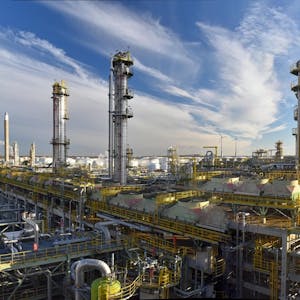Design of Industrial Piping Systems
About this Specialization
Industrial Piping Engineering is a science and a specialized discipline of Mechanical Engineering that is seldom covered in any University curriculum. The science behind piping engineering is extremely important for the reliability of the plant and the safety of the process, personnel, and public. In a typical Chemical or Process Plant, the material cost of piping is around 35% of the initial fixed cost next to the material cost of major equipment (~50%). The field labour cost against the piping goes around 50%. Piping consumes around 50% of engineering man-hours for its design. The importance of piping is far beyond these values. The piping system consists of several piping components. The failure of any one of these components has the potential to shut down the whole plant and, in some cases, it becomes a serious threat to public safety which demands 100% accuracy both in design and erection. With this aim, the course content is meticulously designed to cater to the needs of the Process, Oil & Gas, and Chemical Industries. In a nutshell, the course covers the hydraulics of piping systems subjected to both single and two-phase gas & liquid flows, pipe design, flange types & class, valve types & class, pipe stress analysis, pipe supports, cross-country onshore pipeline construction, and ASME B31.1-Power Piping, ASME B31.3-Process Piping.Created by: L&T EduTech

Related Online Courses
This course aims to assist managers and aspiring leaders to better understand their own identity, enhance their awareness of their own needs and the needs of others, improve their ability to lead... more
The Internet of Things (IoT) stands to be the next revolution in computing. Billions of data-spouting devices connected to the Internet are already fundamentally changing the way we live and work.... more
We live in an age increasingly dominated by algorithms. As machine learning models begin making important decisions based on massive datasets, we need to be aware of their limitations in the real... more
In this course, you will: a) Learn neural style transfer using transfer learning: extract the content of an image (eg. swan), and the style of a painting (eg. cubist or impressionist), and combine... more
In this capstone project course, we\'ll compare genome sequences of COVID-19 mutations to identify potential areas a drug therapy can look to target. The first step in drug discovery involves... more








